Abstract
This study examines the effectiveness of breast cancer screening education programs on mammography rates among African-American women 40 years of age and over. We conducted two types of educational programs in community settings, primarily in African-American churches. Three-month follow-up interviews were used to determine whether women who participated in programming were more likely to get a mammogram if they had not had a mammogram in the last year. Our results demonstrate that the educational programs significantly increased the likelihood of getting a mammogram when compared to a control group that received no educational programming. Further, we found that the programs were effective for motivating breast cancer screening in housing projects as well as in the churches, and that the effectiveness of the programs remained even when we controlled for socioeconomic status, depression, and age.
Full text
PDF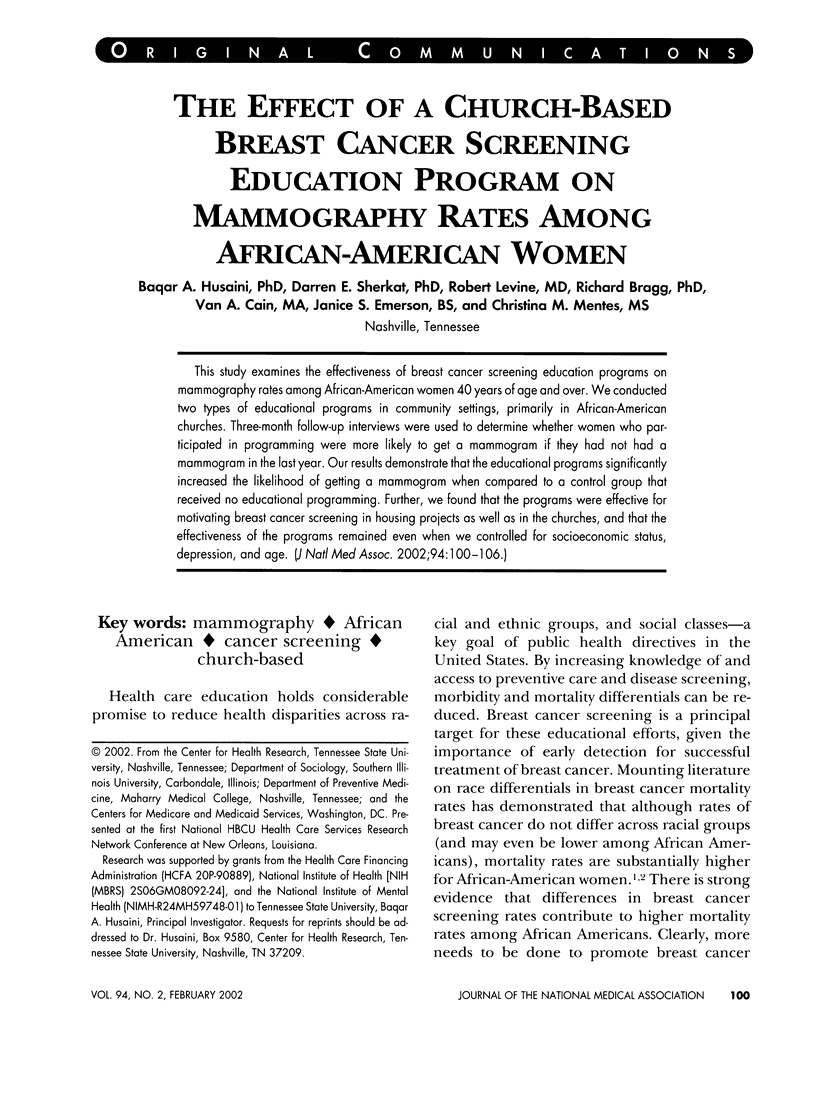
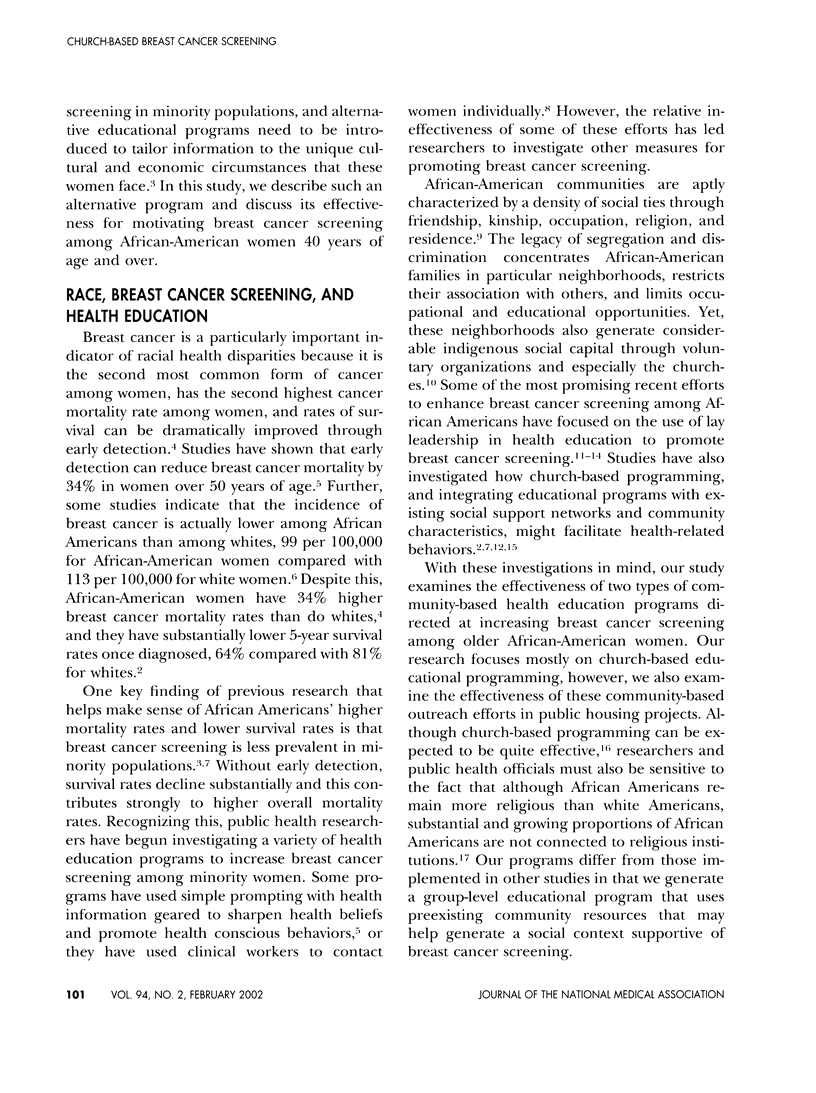
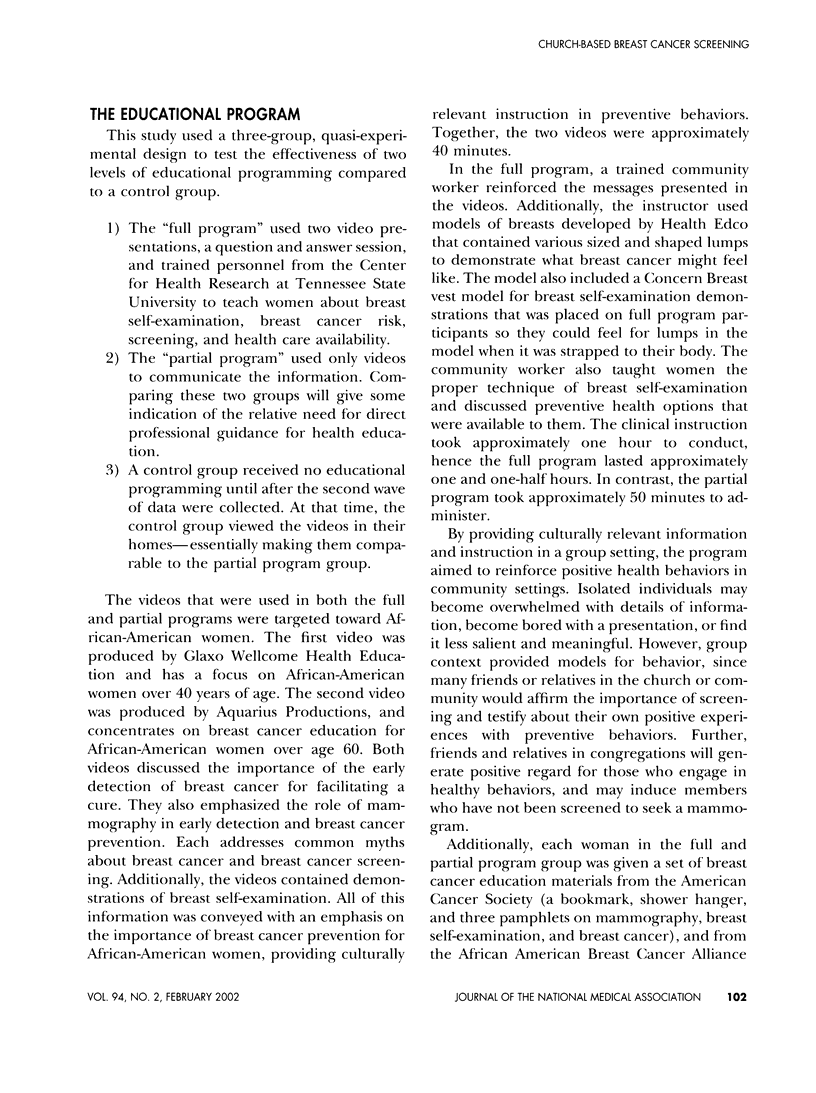
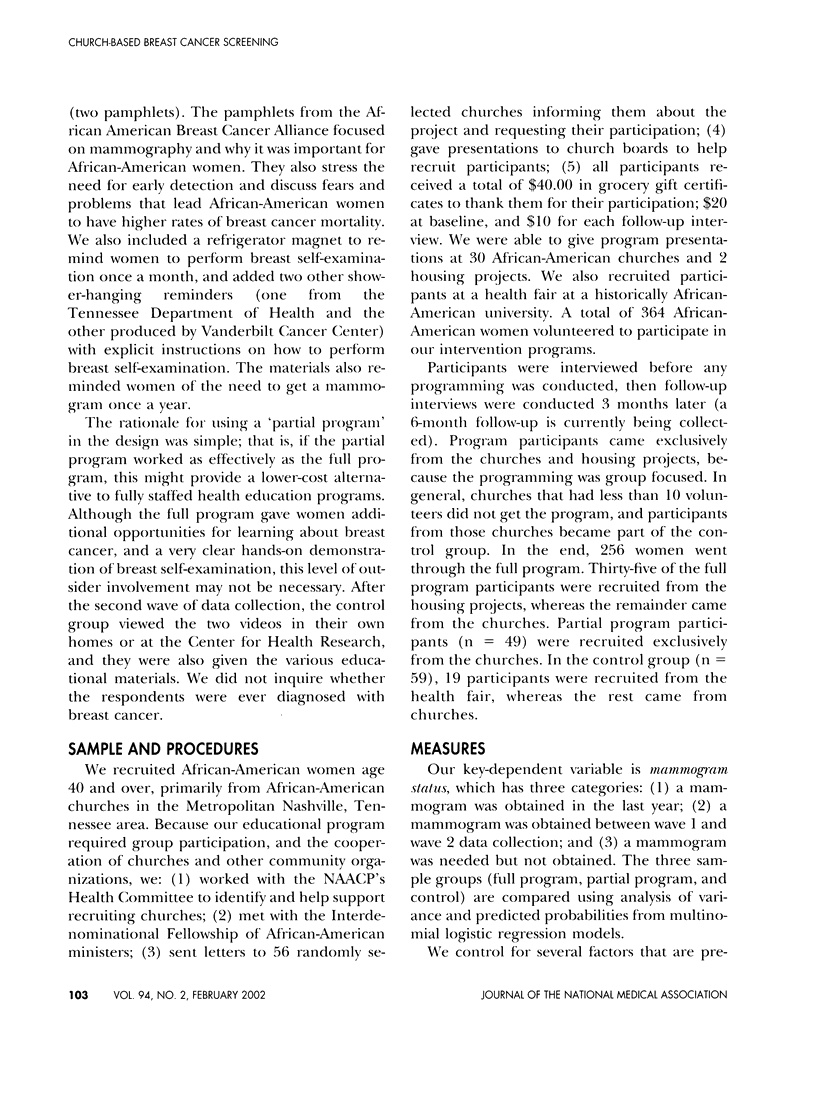
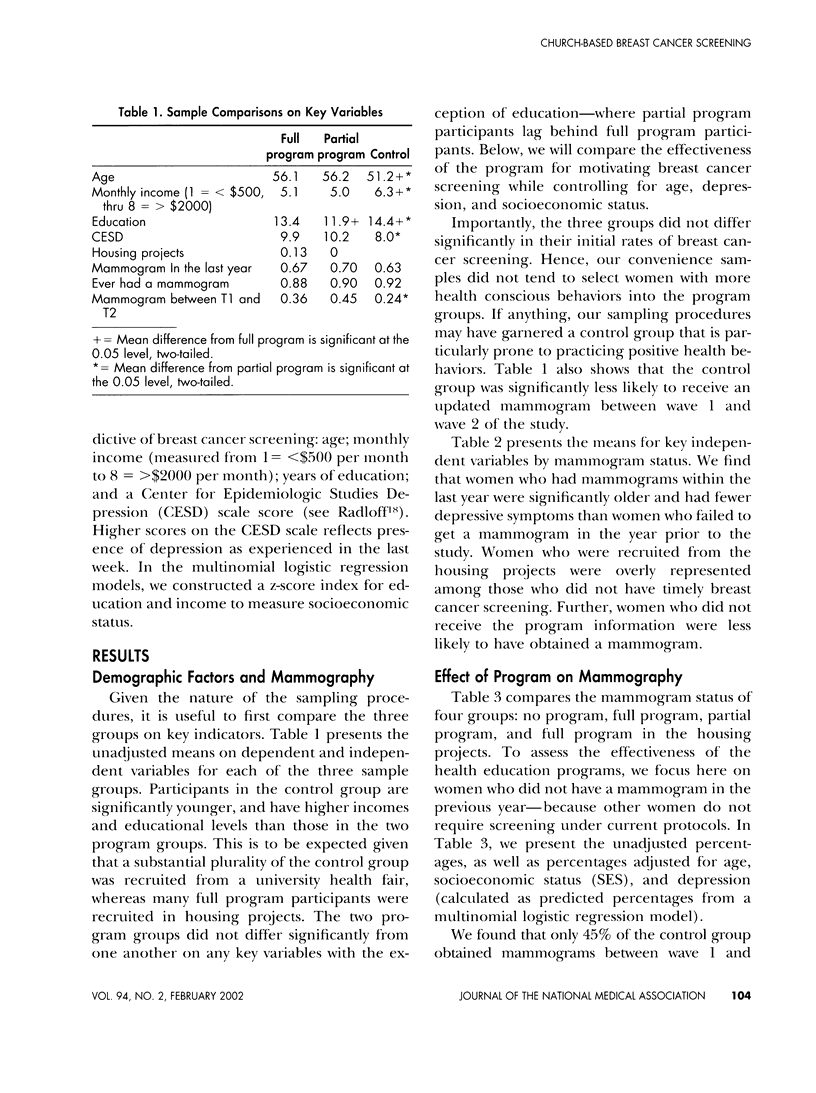
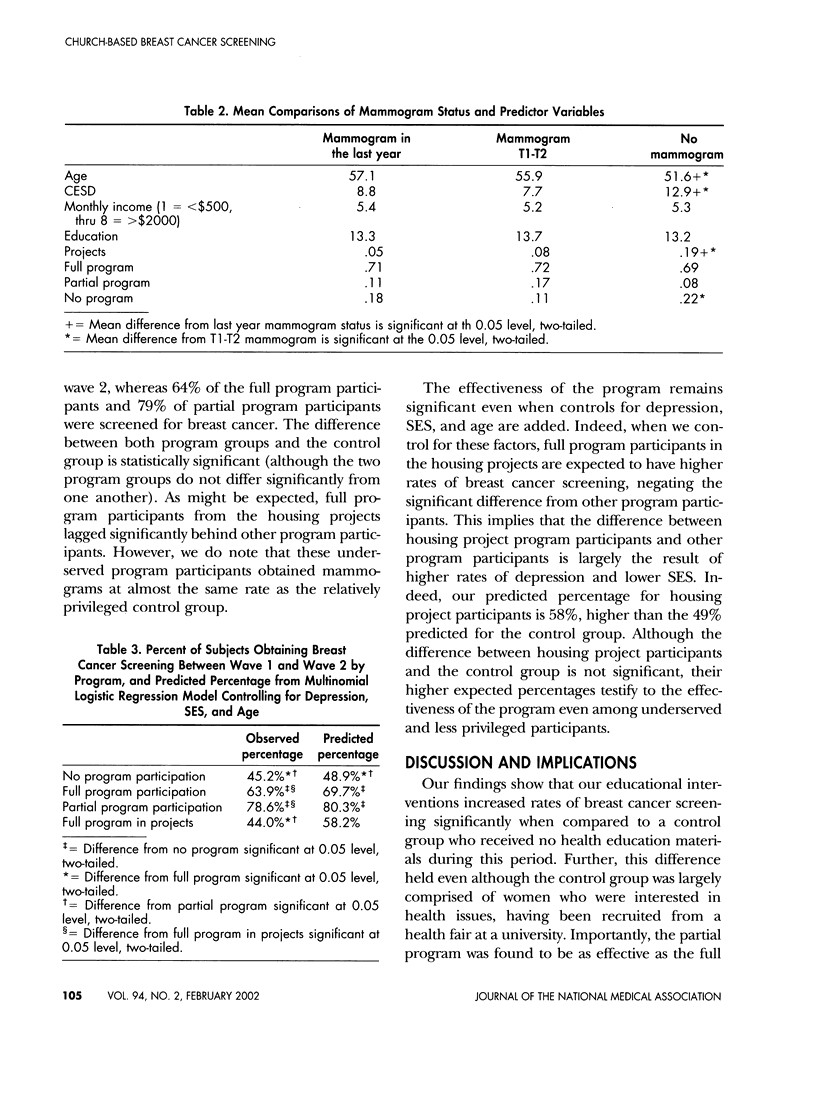
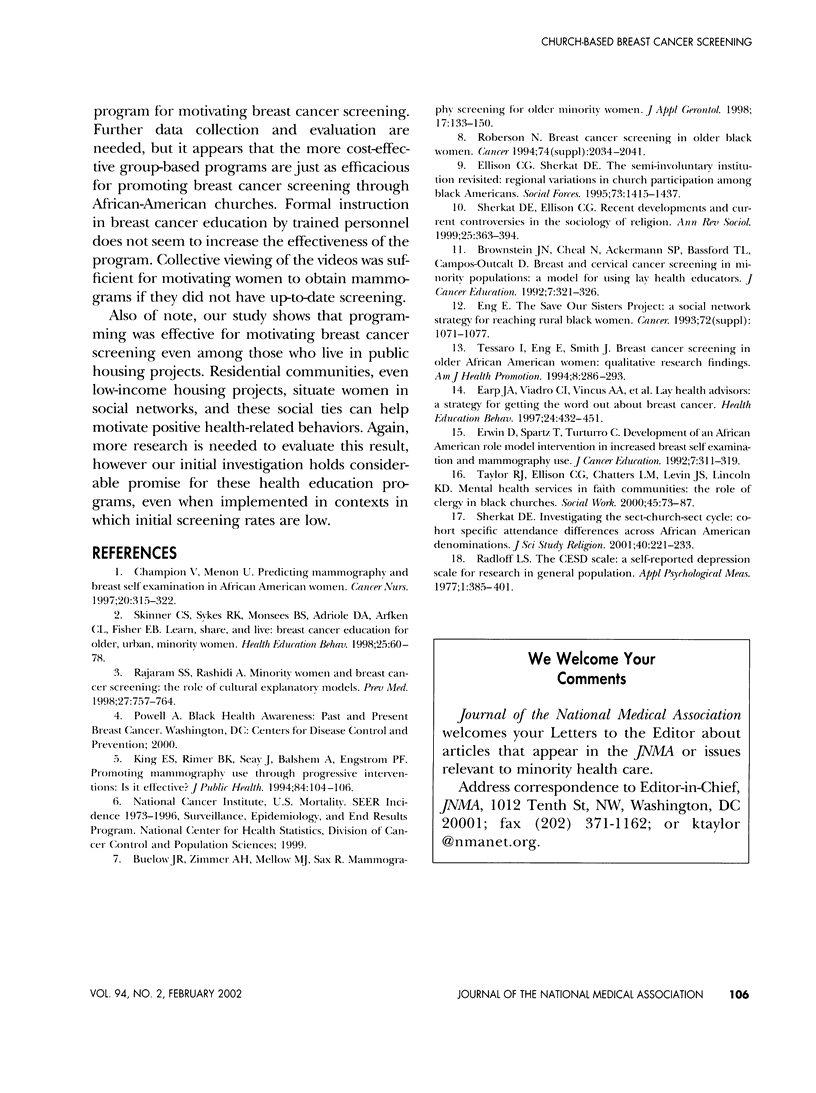
Selected References
These references are in PubMed. This may not be the complete list of references from this article.
- Brownstein J. N., Cheal N., Ackermann S. P., Bassford T. L., Campos-Outcalt D. Breast and cervical cancer screening in minority populations: a model for using lay health educators. J Cancer Educ. 1992 Winter;7(4):321–326. doi: 10.1080/08858199209528189. [DOI] [PubMed] [Google Scholar]
- Earp J. A., Viadro C. I., Vincus A. A., Altpeter M., Flax V., Mayne L., Eng E. Lay health advisors: a strategy for getting the word out about breast cancer. Health Educ Behav. 1997 Aug;24(4):432–451. doi: 10.1177/109019819702400404. [DOI] [PubMed] [Google Scholar]
- Eng E. The Save our Sisters Project. A social network strategy for reaching rural black women. Cancer. 1993 Aug 1;72(3 Suppl):1071–1077. doi: 10.1002/1097-0142(19930801)72:3+<1071::aid-cncr2820721322>3.0.co;2-v. [DOI] [PubMed] [Google Scholar]
- Rajaram S. S., Rashidi A. Minority women and breast cancer screening: the role of cultural explanatory models. Prev Med. 1998 Sep-Oct;27(5 Pt 1):757–764. doi: 10.1006/pmed.1998.0355. [DOI] [PubMed] [Google Scholar]
- Roberson N. L. Breast cancer screening in older black women. Cancer. 1994 Oct 1;74(7 Suppl):2034–2041. doi: 10.1002/1097-0142(19941001)74:7+<2034::aid-cncr2820741708>3.0.co;2-e. [DOI] [PubMed] [Google Scholar]
- Skinner C. S., Sykes R. K., Monsees B. S., Andriole D. A., Arfken C. L., Fisher E. B. Learn, share, and live: breast cancer education for older, urban minority women. Health Educ Behav. 1998 Feb;25(1):60–78. doi: 10.1177/109019819802500106. [DOI] [PubMed] [Google Scholar]
- Taylor R. J., Ellison C. G., Chatters L. M., Levin J. S., Lincoln K. D. Mental health services in faith communities: the role of clergy in black churches. Soc Work. 2000 Jan;45(1):73–87. doi: 10.1093/sw/45.1.73. [DOI] [PubMed] [Google Scholar]
- Tessaro I., Eng E., Smith J. Breast cancer screening in older African-American women: qualitative research findings. Am J Health Promot. 1994 Mar-Apr;8(4):286–292. doi: 10.4278/0890-1171-8.4.286. [DOI] [PubMed] [Google Scholar]


